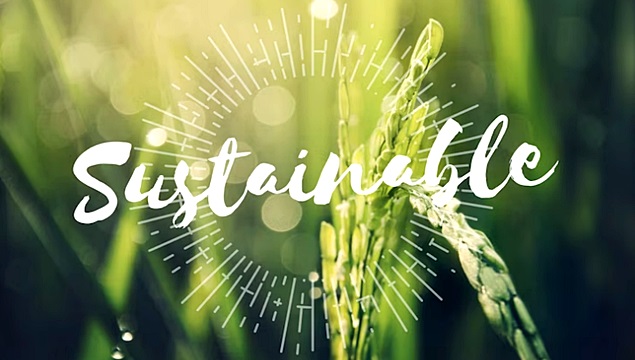1170

Euractiv reports that several EU member states have made efforts for greater flexibility regarding environmental measures in the EU's agricultural subsidy program for 2024, despite no impact assessment being conducted on previous derogations - a move criticized by environmental groups.
The war-induced crisis
In an effort to counter the impact of Russia's invasion of Ukraine, the EU has previously allowed temporary derogations from certain environmental requirements in the EU's agricultural subsidy program, the Common Agricultural Policy (CAP), both in 2022 and 2023 - and if member states get their way, this could be set to continue until 2024.
The request, led by Latvia with the support of the Czech, Estonian, Finnish, Hungarian, Lithuanian, and Polish delegations, is justified by drought, which EU member states say is causing "remarkable crop losses."
"Prolonged and intensified drought conditions have a negative impact on the majority of agricultural crops and their development," the document notes - to be discussed at the EU Agriculture Ministers' meeting on June 26 and 27 - adding that this issue is exacerbated by the secondary effects of the war in Ukraine.
Specifically, this would involve extending temporary derogations for crop rotation and the use of uncultivated land - in other words, agricultural areas set aside for biodiversity - from this year into the next, as well as more flexible rules regarding permanent pasture grazing and soil preparation for autumn and winter 2023/2024 crop cultivation.
How likely is the green light from the Commission?
According to a senior EU official, despite previous leniency on CAP's environmental measures, the European Commission has been "fairly clear" that they "don't really see the same possibility of having such derogations."
"So I think we'll hear similar things from the Commission on Tuesday," the official said.
However, the official mentioned that considering the growing concerns about adverse weather conditions in a number of EU member states, it will be "interesting" to see what comes out of this article.
Meanwhile, commenting on previous derogations, a Commission spokesperson told EURACTIV that the level of uncertainty regarding the global food supply situation following the Russian aggression war in Ukraine "has been and remains extremely high."
"The Commission has consistently emphasized that food sustainability remains key for food security, and we continue the transition set out in the Green Deal," the spokesperson said, adding assurances that "multiple safeguards" are in place and the derogation is limited to what is "strictly necessary to address global food security concerns."
No impact assessment
However, a source from the EU told EURACTIV that as it currently stands, there has been no impact assessment on the previous decision to derogate from environmental measures.
Member states are obliged to report on the adoption and impact of such derogations on the environment and production by the end of the year, so that the Commission can "assess the relevance of such derogations," the source explained.
The source added that the derogations for the 2022/2023 season were based on a "great deal of uncertainty" about how much grain Ukraine would be able to produce and export, and that this uncertainty is "still valid."
"The size of next year's harvest is even more uncertain than in the previous season, and export flows will largely depend on Putin's willingness to keep Ukrainian Black Sea ports open," they said.
However, green groups warn that in the context of the climate crisis, the EU cannot afford to sacrifice the environment on the altar of food security.
Earlier in June, over 100 civil society organizations urged the Commission not to allow further derogations in a joint open letter to the President of the European Commission, Ursula von der Leyen. Meanwhile, a study on the suspension of measures conducted by a coalition of green groups in late May argued that they had not fulfilled their promises.
Marilda Dhaskali from Birdlife stated to EURACTIV that it is "simply unbelievable that without conducting any impact assessment on the consequences of these derogations on nature and climate change," highlighting that this is actually the "cause of the 'adverse weather conditions' farmers are facing."
"Some member states have no shame in requesting further derogations on GAEC 7, 8 [crop rotation and unwanted land derogations], and even more," she criticized.





